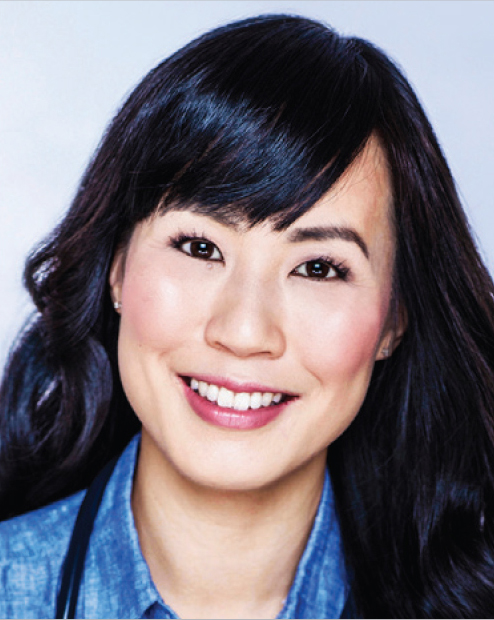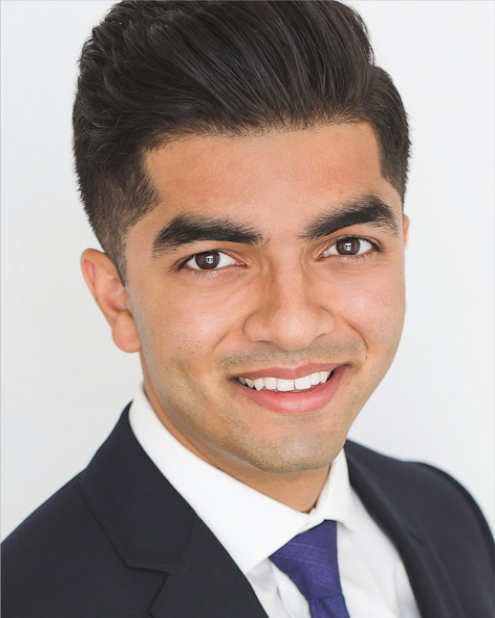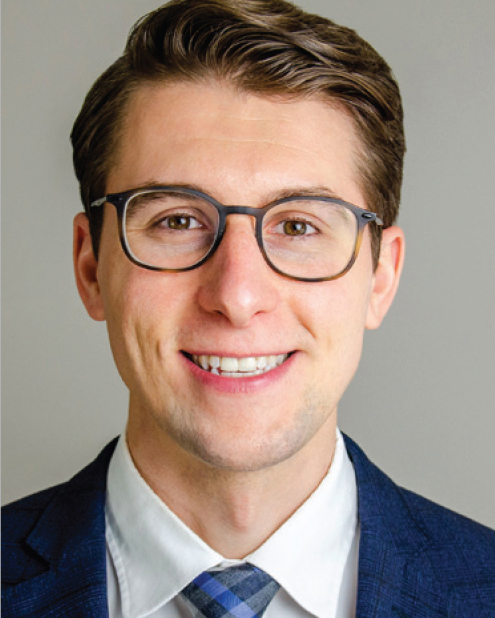2020 Joule Innovation Grant winners from BC
Joule (a subsidiary of the CMA) selected 12 recipients for its 2020 Innovation Grants. The recipients are CMA members from across Canada and will share $500 000 in funding to develop or expand their projects. For more information on the grant program and all of this year’s recipients, visit https://joulecma.ca/innovate/grants.
 Dr Melissa Lem is a Vancouver family physician and a clinical assistant professor in the University of British Columbia’s Faculty of Medicine. She is also director of the BC Parks Foundation’s Parks Prescriptions (PaRx) program, Canada’s first national, evidence-based nature prescription program. The program is driven by health care professionals who want to improve their patients’ health by connecting them to nature.
Dr Melissa Lem is a Vancouver family physician and a clinical assistant professor in the University of British Columbia’s Faculty of Medicine. She is also director of the BC Parks Foundation’s Parks Prescriptions (PaRx) program, Canada’s first national, evidence-based nature prescription program. The program is driven by health care professionals who want to improve their patients’ health by connecting them to nature.
Dr Lem has been awarded a $50 000 grant, in the Sustainable Health Care category, which will allow her to scale PaRx across Canada, build the web application, develop and implement a climate points system for a related app, and create a CME-accredited online module to train prescribers to effectively prescribe nature. A key feature of the program is an app that will incentivize and track time spent in nature, and pair patients with nature experiences with the aim of reducing their stress, anxiety, and depression, and engage them in preventing and mitigating the effects of climate change. Health care providers who register with PaRx will be able to prescribe nature-based activities like planting trees, growing food, or taking part in watershed restoration projects with the aim of improving their patients’ mental health.
Dr Lem is also president-elect of the Canadian Association of Physicians for the Environment, a widely published writer, and an experienced media personality. She has been researching, writing, and speaking about the connection between nature and health for more than a decade.
For more information about PaRx, visit www.parkprescriptions.ca.
 Dr Abhi Cherukupalli is a family medicine resident at the University of British Columbia who is passionate about global health and medical innovation. He started the medical device company Tractus Medical, and designed a device for the treatment of wrist fractures. The device offers consistent fixed traction throughout the treatment and casting process, and can improve the speed and accuracy of the treatment and increase the flow of patients in the emergency department. It can be operated by a single physician when a patient presents with a broken wrist, rather than multiple physicians having to work simultaneously to pull on the wrist and put the broken bones back into place. It can also offer a more effective treatment that does not require surgery, decreasing a patient’s involvement with the health care system.
Dr Abhi Cherukupalli is a family medicine resident at the University of British Columbia who is passionate about global health and medical innovation. He started the medical device company Tractus Medical, and designed a device for the treatment of wrist fractures. The device offers consistent fixed traction throughout the treatment and casting process, and can improve the speed and accuracy of the treatment and increase the flow of patients in the emergency department. It can be operated by a single physician when a patient presents with a broken wrist, rather than multiple physicians having to work simultaneously to pull on the wrist and put the broken bones back into place. It can also offer a more effective treatment that does not require surgery, decreasing a patient’s involvement with the health care system.
Dr Cherukupalli was awarded a $10 000 grant in the Emerging Physician Innovators category. The funds will help him and his team incorporate Tractus Medical, fund prototype development and manufacturing costs of the device, apply for a provisional patent, and apply for Health Canada approval to start clinical trials.
For more information about Tractus Medical, visit https://ca.linkedin.com/company/tractus-medical.
 Dr Gregory Schmidt completed his general internal medicine fellowship at the University of British Columbia. He spent 2 years designing health care systems with Indiana University and AMPATH (Academic Model Providing Access to Healthcare) in rural Kenya. There he helped lead the redesign of OpenMRS, the largest open-source electronic health record system used in low- and middle-income countries.
Dr Gregory Schmidt completed his general internal medicine fellowship at the University of British Columbia. He spent 2 years designing health care systems with Indiana University and AMPATH (Academic Model Providing Access to Healthcare) in rural Kenya. There he helped lead the redesign of OpenMRS, the largest open-source electronic health record system used in low- and middle-income countries.
Dr Schmidt won a $50 000 grant for his work with Bodo Health, a software startup and a virtual clinic that offers in-home speech, language, and voice services. In 8 months, Bodo Health moved from concept and research to a fully functional beta-clinic operating on its own telehealth and electronic medical record, and it is now expanding its services to four provinces.
Every year, more than 60 000 Canadians have a stroke, and stroke patients require a dedicated set of telehealth technologies for their assessment and rehabilitation. The grant, awarded in the Access to Care category, will allow Bodo Health to build tools for virtual post-stroke and neuro-rehab speech services. It will also allow Dr Schmidt and his multidisciplinary team to research, design, prototype, test, and build an integrated online stroke speech-language system; design digital tools and resources to help with face-to-face teletherapy appointments; and hire a senior researcher to study Bodo’s care model for its effectiveness, cost, and safety.
For more information about Bodo Health, visit www.bodohealth.com.
